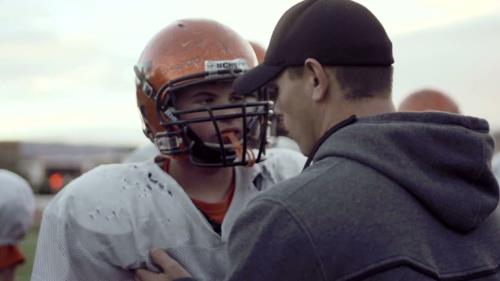-
Certainly I Will Be With You
Contributed by Jack Martin on Mar 27, 2023 (message contributor)
Summary: Poor Moses. He served the same congregation for forty years. During all that time, Moses had no opportunity for advancement.
“Certainly, I will be with you” (God to Moses in Exodus 3:12).
Poor Moses. He served the same congregation for forty years.
During all that time, Moses had no opportunity for advancement. And instead of getting easier as the years came and went, the work seemed to never let up. One challenge after another. It was enough to age a fellow prematurely. Which is why, perhaps, the Lord chose a fellow who was already old–like 80!–at the start.
Think of that. Just at the time most people are getting fitted for a rocking chair and ordering their walk-in bathtub, Moses took on a new assignment. Clearly, the Lord did not ask a committee of Israeli leaders what they wanted in the next shepherd.
Not only was Moses’ congregation the largest one around, it was the only one!
During those forty years, Moses did not receive a single raise. And not the first award or recognition. Well, other than from God, which as it turned out, was more than enough.
The writer of Hebrews said we should ‘consider Jesus “who endured…” (Hebrews 12:3). True. But we may also want to “consider Moses.” He was a lot like us and demonstrates a hundred lessons on how to hang with a difficult job through good times and bad until you get the people of the Lord to the promised land.
Here are a few of those lessons.
One: Moses taught every one who would come after him how to persevere and endure.
It starts and ends with one’s relationship with the Living God. Without that, it’s just a job and a difficult and thankless one at that.
“I will certainly be with you,” said God on the backside of Horeb when He called this elderly shepherd to the greatest task imaginable. Later on, Moses said, “If You don’t go with us, then let’s stop right here. For how will it be known that Your people and I have found grace in Your sight, except you go with us? That’s the only thing that will separate us from the people of the earth around here!” (Exodus 33:15-16 My paraphrase)
The Lord signaled His presence with the cloud by day and the pillar of fire by night. No one was ever in doubt that the Lord was in this place. (Oh, that His nearness was so obvious today!)
A study you will enjoy is to look at all the people the Lord made this promise to –“I will be with you.” He said it to Joshua, to Gideon, to Jeremiah, and others. It was the ultimate difference-maker!
When the Lord warned the church at Ephesus that He might remove their lampstand, whatever else that meant it surely implied that He would withdraw His presence. They would be on their own. There is no worse fate imaginable for someone trying to do the work of the Lord.
Two: Moses knew what the goal was to get these people out of Egypt, across the wilderness and into the Promised Land. Each segment of that call had its headaches and challenges.
God said, “I have come down to deliver (my people) out of the hand of the Egyptians and to bring them up from that land to a good and large land, to a land flowing with milk and honey, to the place of the Canaanites…” (Exodus 3:8).
He brought us out that He might bring us in, Moses would say to them. Escaping Egypt was only the first step. Just as leaving your life of sin and bondage is only the first step in the Christian’s life on earth.
What’s your goal, friend? Why did God send you to this place of service? What is His mission here? If your goal is to mark time until God calls you to the next place of service, you need to return to Him and get this straight. You’ll never be able to stand against the Pharaohs of this life without a clear mandate from God as to your call.
Three: Moses kept learning how to do his job better. He was teachable.
In Exodus 18, his father-in-law Jethro gave him great counsel on sharing the load of decision-making.
Pity the minister who thinks because he is old or experienced or has held this office for years that he has it all figured out and needs no one to tell him anything. Such pastors are burdens to their staffs and dead weights to the leadership. The man of God must be humble and teachable. Let the servant of the Lord always retain that childlike quality and never lose it.
Four: Moses could not do this alone and neither can we.
God said to Aaron, “Go into the wilderness to meet Moses...And Aaron spoke all the words which the Lord had spoken to Moses...So the people believed” (Exodus 4:27).

 Sermon Central
Sermon Central



